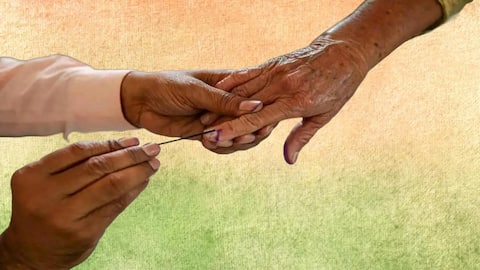Celebrating a diverse democracy: Inclusive electoral participation in India
What's the story
India boasts the world's largest electorate, with 96.8 crore eligible voters. This endeavor, characterized by meticulous planning, coordination, and political party participation, has led to notable achievements in terms of inclusivity and the integrity of electoral rolls. Removing unfair barriers based on ethnicity, religion, caste, and language is essential to achieve truly inclusive elections. Let's explore India's inclusive electoral initiatives.
Civic duty
Promoting youth engagement
Over two crore young voters, aged between 18 to 29 years, have been recently included in the electoral register, showcasing a significant increase in youth participation. To facilitate this, Special Assistant Electoral Registration Officers (AEROs) were appointed at the constituency level. They worked directly with educational institutions encouraging young people to engage more actively in civic duties.
Accessibility
Election Commission's guidelines for PwDs in elections
Ensuring equal participation of Persons with Disabilities (PwDs) has been a non-negotiable premise for the Election Commission of India (ECI). ECI has been actively working to promote accessibility and inclusivity of PwDs in elections through several initiatives. In a groundbreaking move, the Commission has issued guidelines to political parties and their representatives, emphasizing respect in political discussions involving the PwD community, urging strict adherence.
Outreach camps
Empowering particularly vulnerable tribal groups
Special efforts ensured 100% registration of Particularly Vulnerable Tribal Groups (PVTGs) in electoral rolls, enhancing inclusivity. The Election Commission of India prioritized PVTGs' participation by conducting outreach camps during electoral roll revisions, especially in states with PVTG populations. These initiatives aimed to register PVTGs as voters and encourage their engagement in the electoral process, underscoring the Commission's commitment to inclusivity and democratic representation.
Equitable voting
Home voting for elderly and PwDs
In a historic move, the Election Commission of India (ECI) has introduced home voting for the elderly and Persons with Disabilities (PwDs) in the 2024 Lok Sabha elections, a first in Indian electoral history. Eligible voters, aged 85 and above, and PwDs with a 40% benchmark disability, can opt for home voting. This pioneering initiative signifies a major step towards inclusive and accessible elections.
Equality
Rise in female voter registrations
A significant accomplishment is the remarkable increase in female voter registrations, indicating a committed effort towards gender equality and inclusivity in the electoral process. The Electoral Roll now exhibits a more favorable gender ratio, rising from 940 in 2023 to 948 in 2024, showcasing the increasing involvement of women in shaping the nation's democratic landscape.
